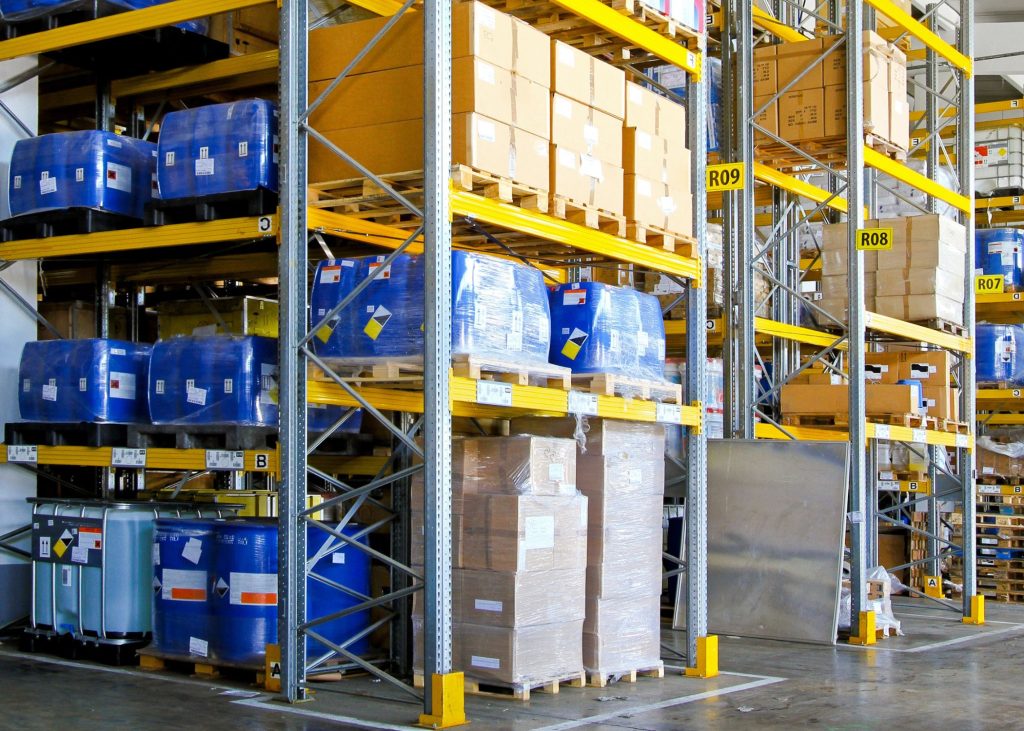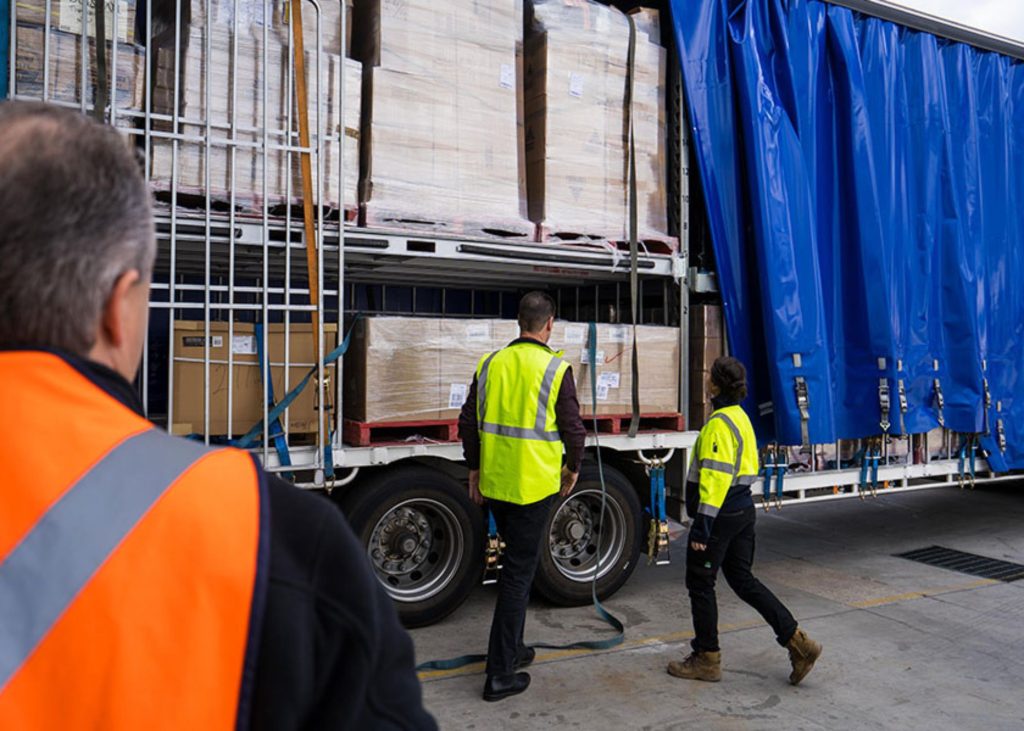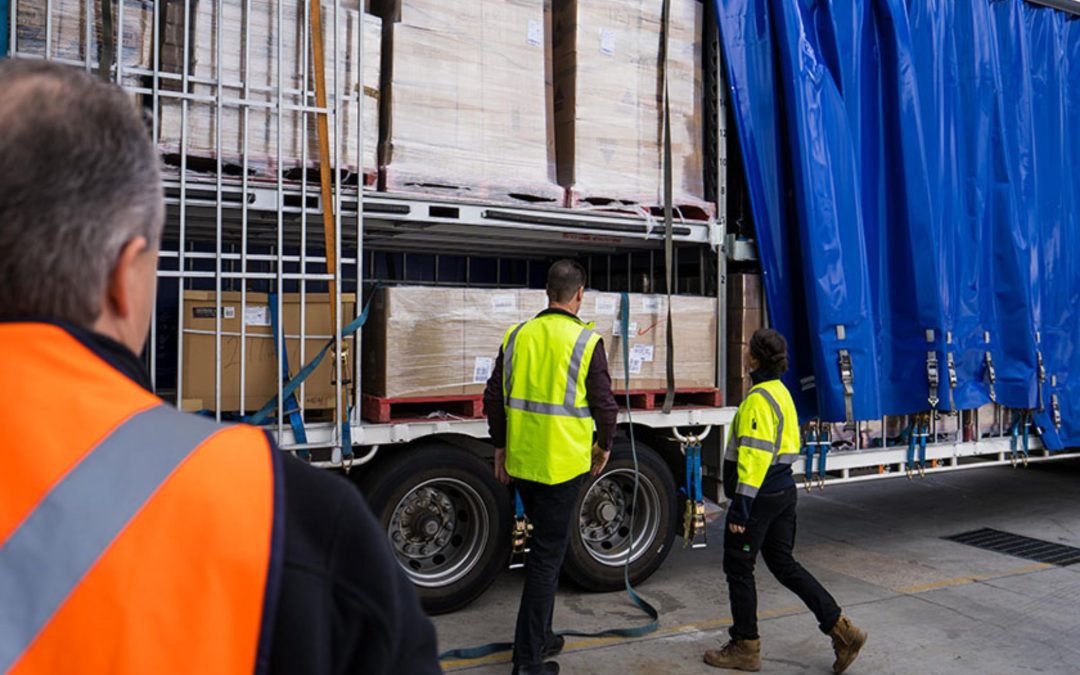In the logistics and transport industry, managing pallet costs is crucial to maintaining profitability. Pallets, the unsung heroes of the supply chain, are often overlooked, but their mismanagement can lead to significant financial losses. After all, a few unaccounted pallets can cost businesses tens of thousands of dollars.
The traditional method of managing pallets involves hiring ‘pallet controllers’ who manually track them, ensuring they’re handed off correctly to avoid holding costs. However, this method is labour-intensive and prone to human error.
The modern, more efficient solution to this problem lies in leveraging technology, specifically made for the industry such as Transport Management Software (TMS).

The Issue with Controlling Pallet Costs
To understand the magnitude of the problem, let’s consider a typical scenario.
A manufacturer needs 10 pallets of products to be transported to a supermarket chain like Coles or Woolworths. They book a transport company to pick up the pallets. Once the transport company collects the pallets of products, the manufacturer updates their system to reflect that these 10 pallets are now with the transport company.
Ideally, when the transport company delivers the order to the supermarket, they’ll deliver the 10 pallets of products and receive the same number of empty pallets back from the supermarket. However, if the supermarket is using all the available pallets, they can’t return them immediately. As far as the system is concerned, the transport company still has the pallets.
This situation is incredibly common, and can lead to significant costs to the transport company. Pallets may not seem expensive on a ‘per pallet’ or ‘per-day’ basis, but when you consider the scale of operations and the number of pallets in transit daily, the costs quickly add up.
The Impact of Unaccounted Pallets
The cost of unaccounted pallets is not just a financial burden; it also impacts the efficiency of the supply chain. When pallets are lost or unaccounted for, it disrupts the flow of goods, leading to delays and potential customer dissatisfaction.
Additionally, it can lead to strained relationships with transport companies and retailers, as they may be held accountable for the missing pallets.
Unaccounted pallets can have a significant impact on various aspects of a business, including:
- Financial Impact: Each lost or unaccounted pallet represents a direct cost to the business.
- Operational Impact: Unaccounted pallets can disrupt the flow of goods, leading to delivery delays and potential bottlenecks in the supply chain. They can also impact inventory management, leading to inaccuracies in inventory counts.
- Impact on Relationships: Unaccounted pallets can strain relationships with transport companies and retailers, leading to disputes and potential damage to business relationships.
- Impact on Customer Satisfaction: Delays in delivery due to missing pallets can lead to customer dissatisfaction and potentially damage the business’s reputation. If the business cannot fulfill orders due to missing pallets, it can lead to lost sales and potentially lost customers.
Unaccounted pallets can significantly impact a business, affecting not just the bottom line but also operational efficiency, business relationships, and customer satisfaction. It’s a problem that needs to be addressed proactively.
The Importance of a Pallet Management Program
A pallet management program is a crucial part of any logistics operation. It helps businesses keep track of their pallets, ensuring that they are used efficiently and returned promptly. A well-managed pallet program can lead to significant cost savings and improved operational efficiency.
Cost Savings
One of the primary benefits of a pallet management program is the potential for cost savings. By keeping track of pallets and ensuring their prompt return, businesses can avoid the costs associated with lost or unaccounted pallets.
A well-managed pallet program can also lead to indirect cost savings, such as:
- The cost of time and resources spent on tracking down missing pallets
- The cost of replacing lost pallets
- The potential cost of penalties or fines if the missing pallets result in non-compliance with regulations or contracts
Each lost or unaccounted pallet represents a direct or indirect cost to the business. While the cost of a single pallet may seem insignificant, the costs quickly add up when you consider the scale of operations and the number of pallets in transit daily.
Improved Operational Efficiency
A well-managed pallet program can also lead to improved operational efficiency. By keeping track of pallets and ensuring their prompt return or handoff, businesses can streamline their operations and reduce the time and effort required to track and manage pallets.
Reduced Environmental Impact
Businesses can also reduce their environmental impact by ensuring that pallets are used efficiently and returned promptly. Pallets are often made from wood, and the production of new pallets can contribute to deforestation and other environmental issues.
Reusing pallets and ensuring their prompt return ensures that businesses can reduce the need for new pallets and thus reduce their environmental impact.
Improved Customer Service
Finally, with a well-managed pallet program, businesses can provide more accurate and timely delivery information to their customers. By keeping track of pallets and ensuring their prompt return, businesses can ensure that goods are delivered on time and in good condition.
This can improve customer satisfaction and help build strong customer relationships. In the competitive world of logistics and transport, providing excellent customer service can be a crucial differentiator and can help businesses to stand out from their competitors.

The Power of TMS Software
One effective pallet management program can sometimes be found integrated with TMS software. This software provides an automated solution to the problem of pallet tracking.
When an order is marked as delivered, the driver can also update the system with the number of pallets left and/or the number of pallets picked up. This real-time update ensures that your transport company is only charged for the pallets that are actually in the truck, eliminating the risk of unaccounted pallets and the associated costs.
TMS software not only helps in managing pallet costs for businesses but also:
- Streamlines operations
- Enhances efficiency
- Provides a true end-to-end solution
It is custom-developed to meet the specific needs of clients, giving them a competitive advantage over their competitors.
The Role of TMS Software in Pallet Management
As you can see, a TMS software plays a crucial role in pallet management. As well as managing your overall logistics operations, it provides a central platform for tracking and managing pallets, ensuring that you are only paying for the pallets in your possession. Here are some ways in which TMS software can enhance pallet management:
- Real-time tracking: TMS software provides real-time monitoring of pallets, allowing businesses to keep track of their pallets at all times.
- Automated updates: With TMS software, drivers can update the system with the number of pallets left and/or picked up, providing real-time updates of the pallets’ status.
- Integration with other systems: TMS software can be integrated with other systems, such as inventory management and order processing systems, to provide a comprehensive solution for managing all aspects of logistics operations.
Ultimately, integrating TMS software into your logistics operations can revolutionise how you manage pallets, leading to significant cost savings, improved efficiency, and enhanced operational control. It’s a strategic investment that can deliver substantial returns in the long run.
The Role of TMS in Streamlining Operations
TMS software does more than just track pallets. It provides a comprehensive solution for managing all aspects of transport and logistics. From planning and execution to follow-up and analysis, TMS software offers a central platform for managing all transport-related activities.
This comprehensive approach to transport management not only helps in controlling pallet costs but also improves overall operational efficiency.
By automating routine tasks and providing real-time visibility of operations, TMS software allows businesses to focus on strategic decision-making and customer service.
Electronic Proof of Delivery: A Game Changer
Another significant feature of TMS software is the Electronic Proof of Delivery (ePOD). ePOD is a digital receipt that confirms that the goods have been received. It provides real-time visibility of delivery status, reduces paperwork, and eliminates disputes over deliveries.
When combined with the pallet tracking feature, ePOD can significantly reduce the costs associated with lost or unaccounted pallets. The driver can update the ePOD with the number of pallets delivered and returned, at the same time orders are delivered, providing a simple real-time update of the pallets’ status.
The Benefits of Electronic Proof of Delivery
The benefits of Electronic Proof of Delivery extend beyond pallet management. By providing a digital receipt of delivery, ePOD:
- Eliminates the need for paper receipts
- Reduces paperwork
- Reduces associated administrative costs
- Provides real-time visibility of delivery status
- Allows businesses to track their deliveries and respond to any issues promptly
This real-time visibility offered by ePOD improves customer service, as businesses can provide their customers with accurate and timely information about their deliveries.
The Future of Pallet Management
As you can see, the future of pallet management lies in technology. With advances in technology, businesses can leverage tools like TMS software and electronic proof of delivery to streamline their operations and reduce costs.
As technology continues to evolve, we can expect to see even more innovative solutions for pallet management. These could include advanced tracking technologies, such as RFID and GPS, and even the use of AI and machine learning to predict and manage pallet usage.

Conclusion
In the fast-paced world of logistics and transport, businesses need to leverage technology to stay competitive. Transport Software, with features like real-time pallet tracking and electronic proof of delivery, provides an efficient and cost-effective solution to the problem of pallet management.
By adopting such technology, businesses can not only save costs but also enhance their operational efficiency and customer service. Remember, every unaccounted pallet adds to your costs.
If you’d like to find out how logistics software can help you take control of your pallet management, get in touch with the team at Infocomm now.

